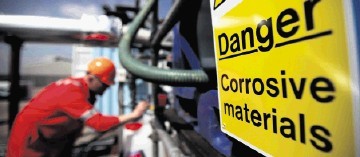
The controlled production of brine from rocks deep beneath the North Sea can greatly increase the amount of carbon dioxide (CO2) that can be injected for storage, new research claims.
The move could also help to reduce the cost per tonne of tackling the UK’s carbon emissions, according to the study.
A multi-disciplinary project, funded by the Energy Technologies Institute (ETI), has studied how brine production, more often associated with oil and gas operations, can enhance the storage potential of saline aquifers already identified as ideal CO2 stores.
The project findings, which will be presented at All-Energy 2017 also highlight other key benefits of using brine production alongside CO2 storage, including the opportunity to convert smaller aquifers into economically viable stores.
It may also give certain storage sites a longer lifespan by allowing operators to increase the injection rate at a later date as new CO2 sources come on stream.
The UK has some of the world’s best geological CO2 storage, up to 2.5km below the North Sea, which can be utilised in carbon capture and storage (CCS) projects to help the UK meet legally binding carbon targets.
Recommended for you
